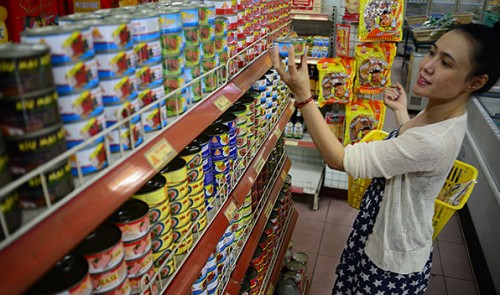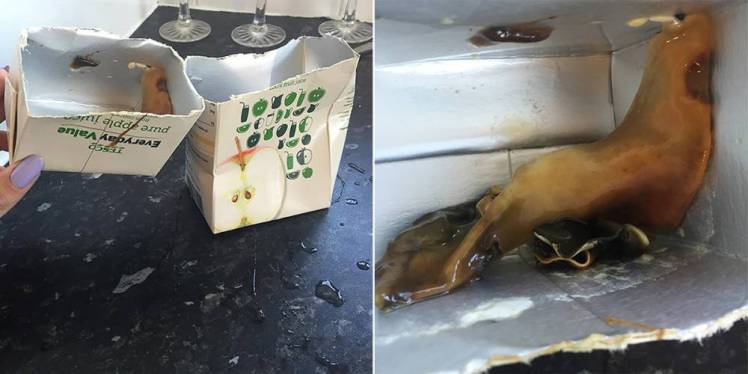

Consumer
If the food you bought from the supermarket is spoilt or contaminated, what can you do?
over 8 years ago fadzelImagine this scenario: You've just come home from grocery shopping, and eager to make yourself a nice simple dinner to end the day. You take out the can of chicken curry you've just bought and face one of the following scenarios:
a) You notice that the chicken curry is expired
b) It's not expired, but when you open the can, you find a dead cockroach inside
While most of us would just take it back to the store to be exchanged or just throw it away, it would be useful to know your actual rights as a consumer, as well as the legal options available to you when your purchase leaves you with a bad taste in your mouth.
We'll first start with the basics, which is..
Businesses are legally required to sell you safe food

Be it a cockroach, mold, or even a rusty nail; here are two important laws that protect you from being sold bad food - the Consumer Protection Act 1999 and the Food Act 1983. While this article is focused specifically on packaged food, the same principles apply to prepared food ordered from a shop - which we will cover at a later time.
To begin with, the Consumer Protection Act states that all sold goods must be safe and not cause harm to the consumer. For instance:
Section 20 of the Consumer Protection Act (in part) :
"... no person shall supply, or offer to or advertise for supply, any goods or services which do not comply with the safety standards..."
Not just that, the product must also adhere to the Food Regulations Act 1985, which governs the quality and standards of food ingredients. So what this means is that unless cockroaches are listed as an ingredient (and somehow approved for consumption) it can be reasonably determined that a cockroach in your canned curry chicken doesn't fulfill safety standards and isn't safe to consume.
On the other hand, spoilt food is defined in Section 13 of the Food Act as (either individually or as a combination):
- Having a negative long term effect on your health
- Containing ingredients which are unfit for human consumption (like rotten or inedible animal or vegetable parts)
- Adulterated or being of substandard quality
Depending on circumstances, the supermarket or manufacturer may be committing an offence if they sell you food unfit for human consumption. The owner will face a fine and/or jail term if convicted.
So what can you do if you find a worm in your orange juice bottle?

Or a weird slug in your apple juice. Image source.
The picture above is from the UK, where a woman claimed to have found the "alien creature" after noticing that her apple juice had a strange color and taste. A similar case also happened in Malaysia, where a woman claims her brother spat out a live slug that was in a box of mango juice.
The first thing to remember is that your first point of contact would be the store or supermarket that you bought the item from. This is mostly for convenience and ease of access to sort out the matter. Here, the Consumer Protection Act 1999 also outlines what you can do to remedy the situation.
If it isn't too serious, like if nothing bad happened to you, you can simply reject the item you've bought and demand for a replacement product or a full refund from the store:
Section 42(1) of the Consumer Protection Act (in part):
"(1) A supplier may satisfy a requirement under section 41 to remedy a failure of any goods to comply with a guarantee by— ...
(c) replacing the goods with goods of identical type; or
(d) providing a refund of any money paid..."
However, things become a little trickier if you've actually consumed the product before realizing there was something wrong with it, and perhaps experienced some discomfort as a result (like food poisoning). In this case, you may be able to sue the manufacturer and/or the supermarket for negligence and claim compensation. However, you should seek advice from a qualified lawyer first.
But don't forget your receipt!

It's advisable that you keep any receipts as proof of purchase to avoid any unnecessary disputes with the store - basically to prove that you've actually bought the item from them at the specific time and date. Also, unless you've suffered a major inconvenience or side effects, it may be best to settle the matter directly with the supermarket and/or the manufacturer as further legal action may be costly and time-consuming.
However, if either of these parties are unwilling to take responsibility or give you a refund, you can also lodge a complaint with The National Consumer Complaints Centre or the Ministry of Domestic Trade (KPDNKK).